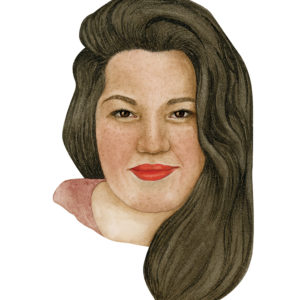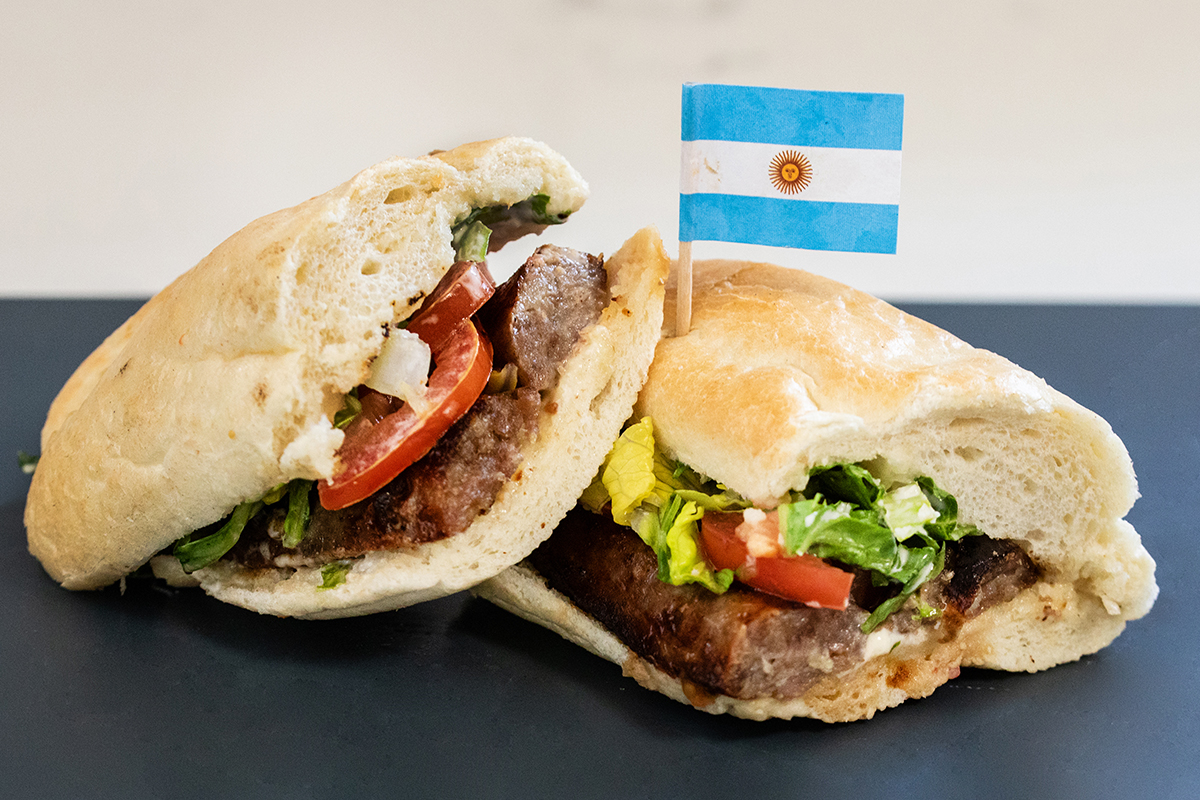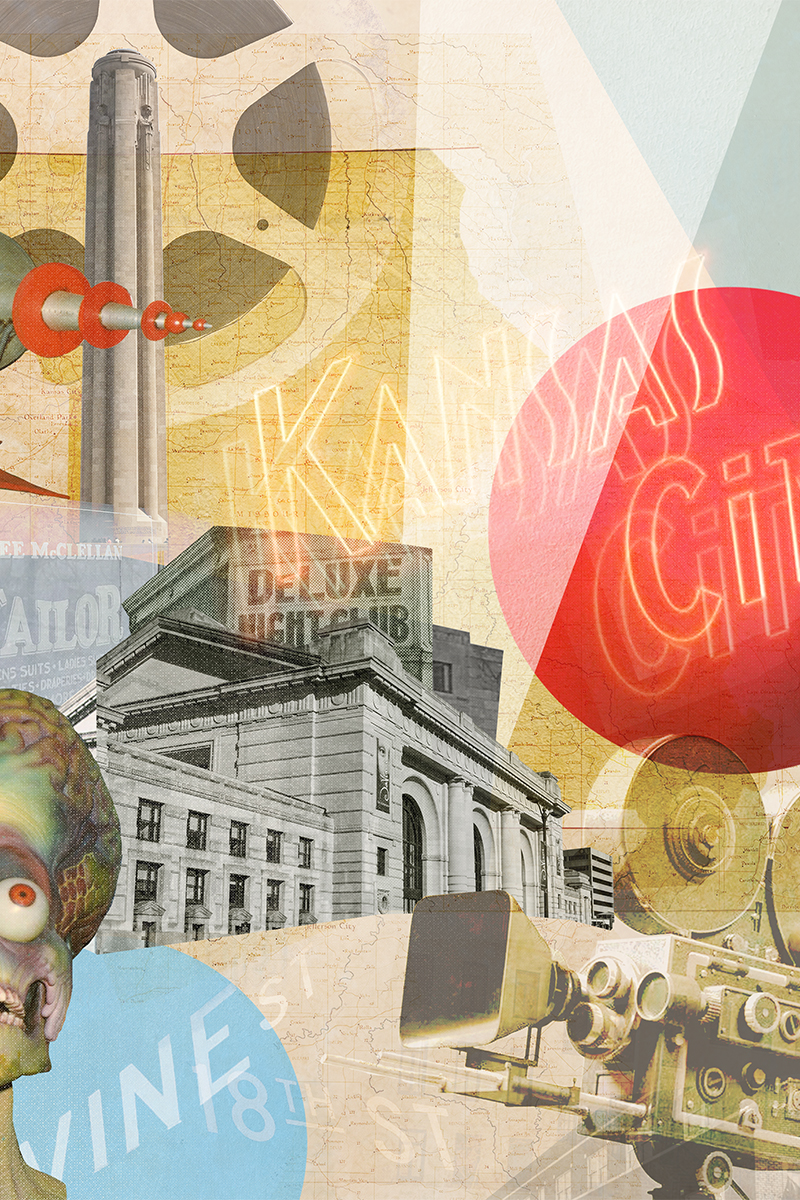Boulevard’s signature beer was a happy accident.
Ten years ago, the westside brewery was working on a saison with the funky wild yeast strain Brettanomyces. The base beer sat in tank seven — as in, the brewhouse tank numbered seven — waiting to be blended. When the Brettanomyces didn’t progress as planned, the brewers took to sampling it.
As it turned out, everyone who tried that base beer fell in love with the fruity aromatics, grapefruit hop notes and layered spice. In the decade since, it’s proved to be the rare offering that’s both a cult favorite among beer geeks and an introduction to craft for Miller Lite drinkers. Tank 7 has won several Great American Beer Festival awards, earned international recognition and is even Paul Rudd’s favorite beer.
Boulevard Brewing is one of the stalwarts of the American craft beer industry. It has been since John McDonald founded it in 1988. McDonald sold it to family-owned Belgian concern Duvel in 2013, which expanded the brewery’s footprint around the world.
Although it debuted in bottles in 2009, two decades after the company’s 1989 founding, Tank 7 was among the first two dozen beers Boulevard ever released since the company didn’t release any new year-round beers between 1997 and 2007. The runaway success of Tank 7 marked a turning point in the company and in Kansas City’s beer scene. Since Tank 7’s release, Boulevard has been aggressively experimenting. In 2018, the company released 20 completely new beers to the general market. This year, they’ll have 22 new offerings hitting the market. The local beer scene has also exploded from a tiny handful of breweries to 51 within an hour’s drive of Kansas City.
Here’s the secret history of Tank 7, as told by the people who made it.
Boulevard Brewing was born in 1989, making its debut with a pale ale. The first place in town to pour the beer was Kelly’s Westport Inn, housed in the city’s oldest building. The company grew slowly but steadily for its first two decades.
In 2006, Boulevard built a second, larger brewhouse to increase its capacity. With more space to stretch, Boulevard introduced the Smokestack Series, a line of high-alcohol beers in 750-milliliter bottles. Among the original four beers in the series was a saison, which sold poorly given the style was still an oddity in America and the beer was no stronger than a typical lawnmower beer.
In 2008, Boulevard hatched a plan to introduce a new saison with earthy character provided by wild yeast. To make that beer, it brewed a dry-hopped saison with a house Belgian yeast strain. Because the Brettanomyces they planned to add was slow to grow, the saison base beer sat in the tank, waiting. Brewers took to filling glasses to enjoy on the patio as their shift drink — including the Belgian-born Steven Pauwels, who joined the company in 1999, and KC native Jeremy Danner, a social media star in the beer world whose title is Ambassador Brewer.
Steven Pauwels, Brewmaster: It’s not uncommon to go up to the tank, take a taste from the spicket and go sit on the patio and drink it.
Natalie Gershon, Vice President of Marketing: You know, brewers test the beer a lot.
Pauwels: Oh, sorry, we were testing, sorry. It wasn’t drinking, it was testing.
Jeremy Danner, Boulevard Ambassador: In fairness, it did start out with small glasses that we used to pull samples, and it gradually got bigger until we were taking whole pitchers out to the patio.
Pauwels: I remember Travis Hartzler was drinking it every evening with some other guys [on the Boulevard patio], and I would go up and be like, “What are you guys drinking?” And they’d say, “We’re drinking the beer from Tank 7. This is one of the best beers you guys ever made.”
Danner: Around that same time, we filled some kegs by hand and took them to a beer fest here in KC in Power & Light. They stuck us way back in the top corner and no one was coming up there at first, and then they heard about the saison and everyone started coming up there. Word kind of spread around the festival that Boulevard had this amazing dry-hopped saison — we weren’t calling it anything, either.
Soon, brewers were talking about releasing the beer from tank seven to the public without adding the Brettanomyces. The marketing department entered the conversation, and that’s when the naming wars started. The battle has entered company lore, says Gershon, who’s overseen Boulevard’s marketing initiatives since she left Los Angeles (where she worked with natural and organic goods) to return to KC
in 2016.
Gershon: Thank God the brewers wanted to call it Tank 7 because at one point, marketing wanted to call it the “Poet of the Plains.”
Danner: I threw a fit. I remember emailing brewers and getting together and talking about it. We had a meeting in the old lab in the sensory room, and we had this, like, showdown about the name.
John McDonald, founder of Boulevard Brewery in a 2010 interview with Heavy Table: Our marketing people were like, “That’s crazy. That’s the dumbest name.” But that’s what the brewers called it. And there was almost a revolt. The brewers kind of came up to me and said, “God damn it, this beer will be called Tank 7.” I figured, they made it, they like it, we’ll just call it that.
Danner: To me, that highlighted the importance of the brewers’ opinion in the beer. You can do great things when there is this give and take between sales and marketing and brewing ready to work together on
the beer.
Gershon: We wouldn’t be having this conversation today if that beer was called the Poet of the Plains.
It was magic straight from the tank. That might have had something to do with the origin of the Tank 7 yeast strain, which Pauwels brought over when he moved to the States in 1999 to work at Boulevard.
Pauwels: The yeast is interesting — it was in my pocket when I moved over here.
Danner: You can’t do that anymore.
Pauwels: I just bought a slant from a Belgian brewery that I really like, and I just brought it over with me. It’s probably commercially available now because somebody must have got it, but it was not commercially available at that point. And it’s not a saison strain. It’s a Belgian Abbey strain. People ask me, “What’s the best strain to make a saison?” I’m always like, “Don’t use a saison strain.”
In 2009, Boulevard quietly phased out its old saison and replaced it with Tank 7. There was no fanfare around the launch of the beer, but Tank 7 was an immediate success. A decade ago, the beer world was very different. There were around 1,650 breweries across the U.S., compared to the 8,000 today.
Danner: It was a lot easier to launch a new beer back then. It just wasn’t as crowded.
Gershon: It didn’t take as much effort. You didn’t have to roll out the red carpet.
Danner: “Hey, we have a new beer!” And people would be like, “Cool, we’ll come try it.”
Beer Bible author Jeff Alworth in a review from Berrvana Blog: Saisons are a state of mind as much as a style, and Boulevard does a magnificent job of capturing their essence without being slavish to a Belgian norm. Perhaps as a nod to the region, Boulevard’s version uses corn and wheat in the grist, and the result is a soft, lightly sweet malt base as comforting and familiar as a bowl of porridge. The aroma is pure saison, though, with a musty, slightly cellarlike quality the yeast gives. The yeast also provides some interesting pepper notes, and while the grains are suggestive of sweetness, the beer is really quite dry and finishes with a crisp snap.
Danner: What’s cool about Tank 7 is how it’s a complex beer. It’s higher ABV. It’s a beer that appeals to chefs, but it’s also ridiculously approachable. It’s light in color, it’s not scary, it’s not hard to drink at all, especially considering the 8.5-percent ABV. I remember when we first launched it, you’d go to a bar and there would be beer dorks that are drinking it, and then an old lady would come up and say, “I love Tank 7!” And I’d be like, “I love that you love Tank 7.” It had this appeal that we didn’t know it had. We launched it thinking of it as this higher-end, esoteric beer, and then we quickly realized that Tank 7 appeals to a lot of people.
Pauwels: Over and over you hear the story: “I love Tank 7,” someone will say. And our response is like, “Oh, cool, you’ve moved up from wheat beer or pale ale?” And they say, “Oh, no, I’m a Miller Lite drinker.” How do you make that leap? Where did that come from? And we hear that over and over.
Although Tank 7 was a happy accident, as it became Boulevard’s national flagship, the company had to figure out how to mass produce it without diluting the quality. The recipe has been refined over the years to enable production on a larger scale. Inverted sugar replaced pregelatinized corn flakes, and the hop mix was diversified to have a blend that would maintain consistent flavors from batch to batch. With the changes, the beer has continued to grow in popularity — even with hardcore beer geeks.
Pauwels: Initially, that beer was made around Amarillo hops, and any brewer that works with Amarillo knows that one year it’s fantastic and the next year, it’s like, “What is this crap? What am I going to do with this?” It’s not predictable, and you can’t build a brand around unpredictable hops. Early on, we moved away from just focusing on Amarillo. Today, we still use Amarillo, but there’s also Citra, Calypso and Bravo.
Gershon: I think one of the coolest things about Tank 7 is, you know, we created magic once, but to give something to the masses, you have to figure out how to create magic en masse consistently, all of the time — even with varying hop varieties each year, with ingredient changes, with environmental changes. I think there’s something so cool about that, that there’s skill in finding consistency. Part of the magic was the discovery, but it’s been brewing slowly and methodically over time.
Pauwels: I was out with some other brewers, some pretty well-known brewers, on a road trip, and we were sitting in the car discussing beer and stuff, and at one point, it comes up: “Belgian-hybrid beers between American style and Belgian style, they never work out.” And I’m listening, and I’m like, “Guys, you’re saying that you don’t like Tank 7.” And they’re like, “No! No, no, Tank 7 is an amazing beer. That’s the exception to the rule.” So it got embraced by other brewers really quickly, too, which helped it out a lot.
Danner: It’s still crazy to go out to Toronado in San Francisco, which is an amazing beer bar, and it’s permanent there. It’s this reminder that Tank 7 is this cool and well-regarded beer. When I go there, I have to take a picture, because I think that’s awesome to see our beer on tap permanently.
Pauwels: And at Falling Rock Tap House [in Denver], it’s always there. When you see that, you’re like, “Oh, we made it.”
Gershon: At one point, 10 years ago, we were thinking Tank 7 is this sophisticated thing, it’s white tablecloths, etc. — but it is so much more approachable than that. From great pizza to a burger to steak to fish, it all works. I think it’s so fascinating that you can pair it with a grilled cheese.
Danner: It fits with everything. We did a dinner at Rye a few years ago, and I don’t remember what I paired Tank 7 with, but I sat down and Steve goes, “That was a really good pairing, but you could pair this with hot dog water and it would be good.”
From casual drinkers to “beer dorks” to serious chefs, Tank 7’s mass appeal can’t be denied. And though it’s creation was a happy accident, that hasn’t stopped other brewers from trying to recreate the magic.
Danner: Sometimes you have another beer and you’re like, “This is trying to be like Tank 7.” It’s flattering. But then you’re also like, “Damn it.”
Pauwels: The first time that it happened, for me, it was at a festival in a state a little more south from here, and I thought, “How dare they! How dare they just copy what we’re doing.” But then after a while, you’re like, “Oh, it’s kind of flattering that they’re trying to make the same beer,
I guess.”
The replication wasn’t always intentional. In 2010, Pauwels was on a tour of a Belgian brewery when the brewer poured a taste of a beer made to the specifications of chef Rene Redzepi, the man behind world-renowned restaurant Noma.
Pauwels: The guy says, ”Hey, I made this beer for Noma, I worked with the chef and he wanted it to be like the best food-pairing beer.” And he gives me the beer and I’m smelling, and I’m like, “Hmm, this smells very familiar.” And I take a sip and I’m like, “Dude, you made Tank 7!” And he’s like, “What’s Tank 7?” And I explained it all to him, and he was like, “Yeah, that’s exactly what the chef asked us to make.”
Gershon: People were craving more innovation than was coming from the industry. That’s certainly changed. We are at the deep inverse of that now. But what excites me about Tank 7, our most nationally well known and renowned beer, is that we’ve still only had the smallest percentage of the craft beer consumer population try it. There is a huge runway and opportunity for this beer to be bigger, even with the competition and all the amazing variety we have today. Its rise has been steadily growing, and bubble or not, it has a decade of amazing history. It was embraced by brewers, chefs and foodies early on, and it’s known for its versatility. So it’s lasting. It’s not a fad.
In 2012, Boulevard began exporting Tank 7. It’s currently distributed in 17 countries, including Belgium — Boulevard’s biggest export market, with France at a close second.
Pauwels: It’s kind of cool to get a picture of somebody sitting in a bar in Hong Kong like, “Hey, I’m having a Tank 7.” A friend of mine was in China somewhere, walked into a bar and sent me a picture of the Tank 7.
Gershon: I was in France this summer, and I walked into a little place called Frenchie To Go for breakfast, and they only had one beer offered, and it just said “Saison.” And I was like, “Huh, I wonder what it is.” And I look and the handle is Boulevard Tank 7. And I was like, “OK, you serve one beer, here, one beer — in Paris! And it’s Boulevard Tank 7!” And of course, I had to have a whole conversation, and I was like, “I work at Boulevard!” And the guy, in this very thick accent, was like, “You’re from Kansas City?!” And I was like, “Oh my God, how do you know?!”
Danner: It’s funny, we can drink Tank 7 every day, but when you see it in a cool place like that, you’re like, “Damn right, I’m having a Tank 7.”
Gershon: I think we know Tank 7 is a thing, and we hope to keep honoring it and growing it, but we still geek out when we see it. And after another decade, I don’t think that will change.






